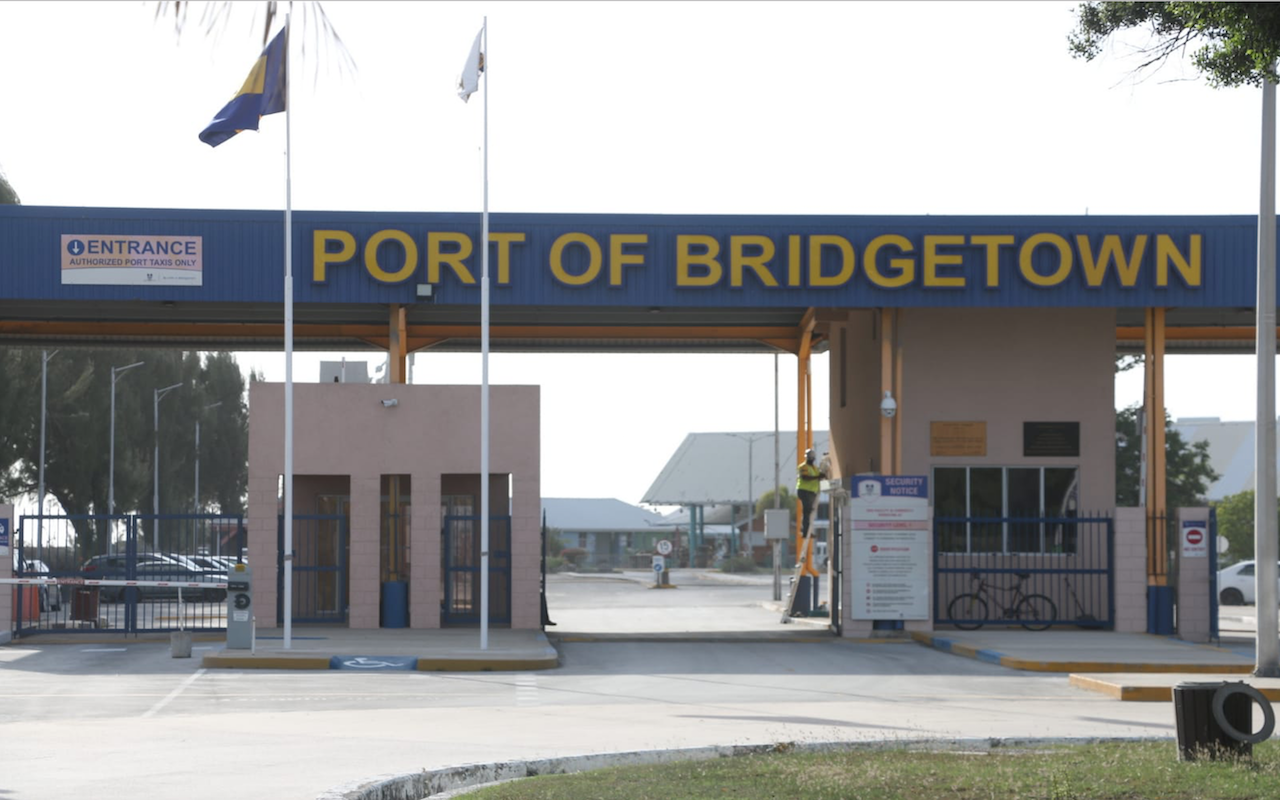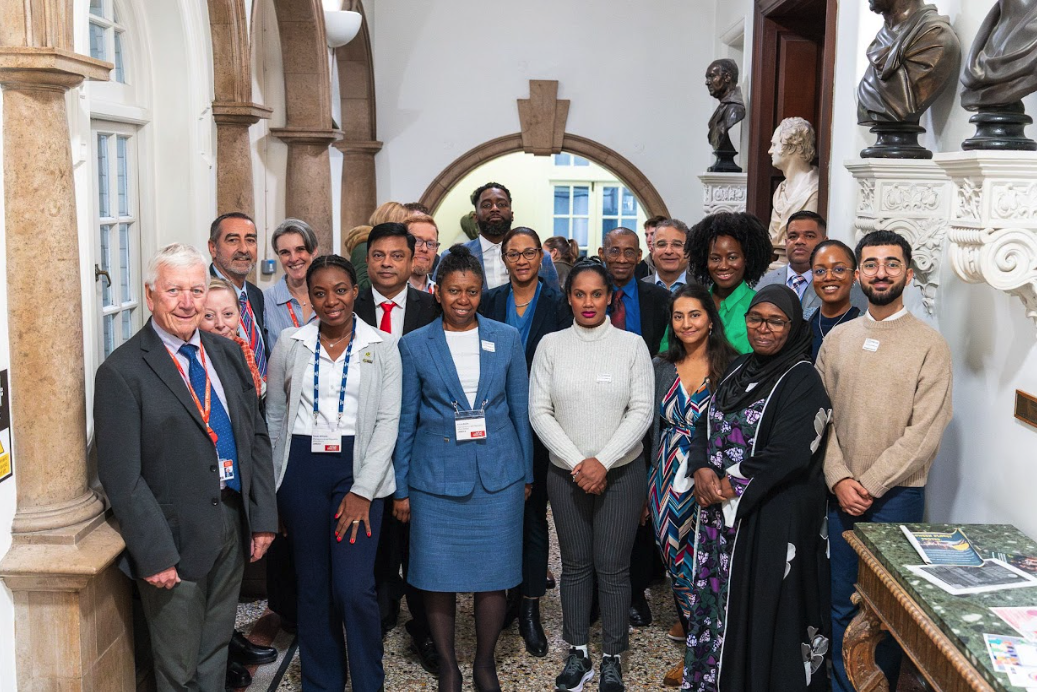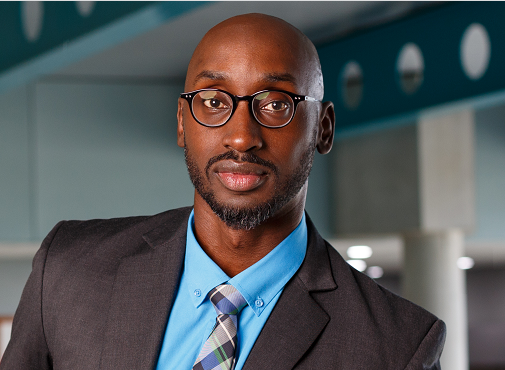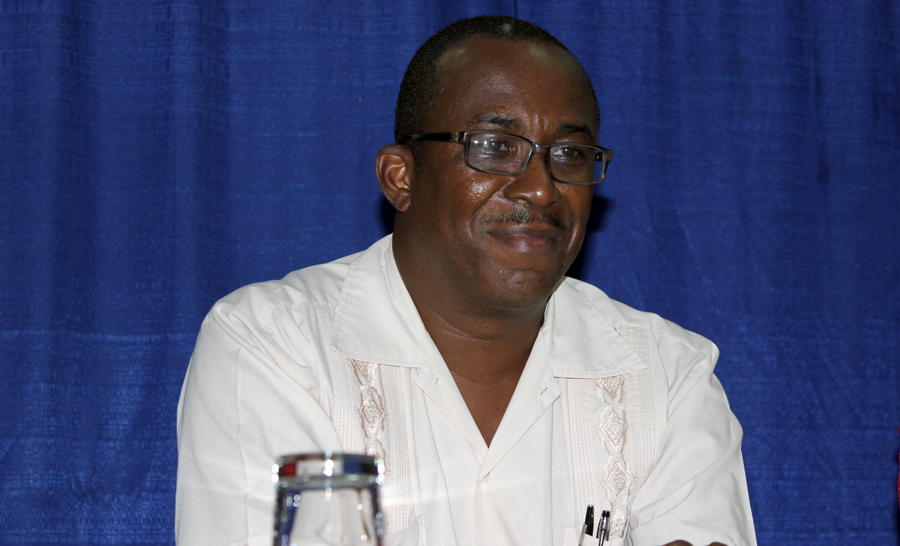Barbados is taking significant steps toward establishing a structured palliative care service, as revealed by Dr. Carlos Chase, Director of Medical Services at Queen Elizabeth Hospital (QEH). Speaking at the Barbados Association of Medical Practitioners’ (BAMP) annual conference, Dr. Chase highlighted that palliative care remains an evolving concept within the nation’s healthcare system. He announced that QEH teams will convene next week to discuss the framework’s structure, including staffing solutions, given the current shortage of oncologists. However, he acknowledged that Barbados has yet to implement a fully functional palliative care system.
标签: Barbados
巴巴多斯
-

Radiation therapy to resume soon in Barbados
Barbados is set to enhance its cancer care capabilities with the reactivation of upgraded radiation therapy facilities at the Queen Elizabeth Hospital (QEH). The hospital’s new Halcyon linear accelerator, described as a high-end machine, promises advanced radiation treatments with improved imaging, accuracy, and speed. This development, highlighted by oncologist Dr. Lalitha Sripathi during the Barbados Association of Medical Practitioners’ (BAMP) annual conference, marks a critical step in addressing the island’s growing cancer burden. However, Dr. Sripathi emphasized that technology alone is insufficient. She advocated for a holistic approach to cancer care, encompassing medical, emotional, social, and spiritual support for patients.
-

Cruise passenger detained after security breach at Bridgetown Port
A cruise passenger was apprehended by authorities on Friday night following a security breach at the Port of Bridgetown in Barbados. The individual attempted to re-enter a ship without proper clearance, leading to a confrontation with port security. During the incident, a Port Security Officer sustained injuries and was promptly provided with medical attention.
-

The changing outlook of contemporary trade unions
Modern trade unions appear to have lost much of their former vigor, a stark contrast to their dynamic presence in previous decades. This decline can be attributed to a confluence of factors, with ineffective leadership emerging as a central issue. The current state of trade unions suggests a movement in crisis, struggling to adapt to contemporary challenges. Historically, trade unions thrived under strong, visionary leaders who commanded respect from members, employers, and political figures alike. While not all current leaders are ineffective, many have been criticized for their silence on critical issues affecting workers and society at large. Traditionally, unions played a crucial role as societal watchdogs, overseeing social, economic, and political policy changes. However, their vigilance and passion seem to have waned over time. The reasons for this shift remain debated. Some attribute it to a lack of enthusiasm among leaders, while others point to a disengaged membership that fails to hold leadership accountable. Critics argue that many union leaders have failed to evolve, clinging to outdated strategies and parochial concerns. This resistance to change has created tension between older leaders and younger workers, who bring fresh perspectives but often feel marginalized. The generational divide poses a significant challenge, with younger members advocating for succession planning and modernization, while entrenched leaders resist relinquishing control. Bridging this gap is essential for the survival of the labor movement. Additionally, trade unions must address their public image, often marred by perceptions of bureaucracy and self-interest, which hinder efforts to attract new members and gain public support. Dennis De Peiza, a Labour & Employee Relations Consultant at Regional Management Services Inc., highlights the urgent need for unions to adapt and rebuild their relevance in today’s rapidly changing world.
-

Wales storm into semis with dominant 5–2 victory
In a thrilling night of football at the Gall Hill Playing Field in St. John, Weymouth Wales delivered a dominant performance to secure a 5–2 victory over Notre Dame, booking their place in the semi-finals of the Prime Minister’s Cup. The Carrington Village side showcased their superiority from the outset, with defender Andre Applewhaite leading the charge. Applewhaite, named Flow Man of the Match, scored twice in the 45+2 and 90+3 minutes, while also contributing defensively. Wales’ early dominance was evident with goals from Nicoli Brathwaite (4th minute), Romario Harewood (12th), and Ackeel Applewhaite (21st), establishing a commanding 3-0 lead. Notre Dame briefly rallied with two quick goals from Carl Joseph’s spectacular free kick and Antone Greaves’ composed finish, but Wales quickly regained control to seal their progression. In the night’s second match, Paradise FC edged past Ellerton in a tense encounter that went into extra time. After a goalless 90 minutes, the decisive moment came in the 113th minute when Ellerton captain Shakille Belle inadvertently scored an own goal, sending Paradise into jubilation. Despite Ellerton’s resilient defense and goalkeeper Kerry Holder’s heroics, Paradise’s attacking trio of Khimani Cox, Tyrel Rayside-Demedonca, and Mikalai Dziazhko kept the pressure on. Substitute Kishmar Ramsey’s free kick delivery led to the unfortunate deflection off Belle, ending Ellerton’s hopes and securing Paradise’s spot in the semi-finals.
-

Neighbourhood firm champions sporting ambitions at Welches Primary
Students at Welches Primary School were encouraged to embrace the transformative power of sports as local firm Equip4you announced its sponsorship of the school’s cricket, netball, and football teams. The event, which brought together young athletes of the Welches Wolves, featured inspiring remarks from Stephen Leslie, Marketing Director of the Barbados Cricket Association. Leslie emphasized that sports are not merely recreational activities but pathways to discipline, personal growth, and global opportunities. He urged students to seize the moment, stating, ‘Sports will provide you with opportunities that you would never have thought about in your journey.’ Leslie also praised Principal Julia Broomes, teacher Jason Parris, and Equip4you Director Sam Johnson for their dedication to nurturing young talent. Drawing from his extensive experience, Leslie highlighted how sports can forge connections and open doors beyond Barbados. He shared anecdotes from his travels across the Caribbean and a memorable experience in Jamaica, where he witnessed Olympic champion Usain Bolt and other athletes secure scholarships through their performances. Leslie encouraged students to envision a future beyond academics, citing global icons like Rihanna and cricket legends Virat Kohli and Chris Gayle as examples of Barbadian success. He also stressed the growing opportunities for both genders in sports, emphasizing the importance of building a strong personal legacy. Sam Johnson expressed pride in Equip4you’s partnership with Welches Primary, describing it as a meaningful and flourishing relationship. Shakira Doughlin, Regional WM manager at Lyfstyl Caribbean, shared her own journey in athletics, urging students to embrace the personal growth and global exposure that sports offer. Justin Parris, Barbados Under-15 captain and Welches alumnus, encouraged young athletes to stay determined and learn from their mistakes, highlighting the lifelong bonds and lessons that sports create.
-

The lasting impact of the Boy Scout movement on my life
In 1950, at the age of nine, Dr. Basil Springer first stepped onto the grounds of Harrison College in Barbados, unaware of how the Boy Scout movement would profoundly shape his life. Under the guidance of Mrs. Beryl Sharpe, he joined the Cub Scout programme, where he discovered discipline, camaraderie, and a sense of purpose that would remain with him throughout his life. This marked the beginning of a transformative journey that would leave an indelible mark on his character and values. At age 11, Dr. Springer transitioned to the Scout movement under the leadership of Mr. Ralph Mann, an English Scout leader and teacher at Harrison College. Mr. Mann’s dedication to Scouting and his emphasis on leadership development had a lasting impact on young Basil, providing him with opportunities for personal growth and a commitment to community service. One of the most cherished aspects of Dr. Springer’s Scouting journey was his enduring friendship with Trevor Austin Hassell, whom he met on his first day at Harrison College. Together, they rose through the ranks, from Cubs to Scouts, eventually achieving the prestigious title of Queen’s Scouts. In 1958, alongside Trevor’s younger brother, the late Frank Hassell, they embarked on a memorable Venture Scout journey along the old Barbados train line, now known as The Barbados Trailway. Their adventures extended beyond Barbados, as they participated in Scout camps in St Vincent and the Grenadines, Trinidad and Tobago, and represented Barbados at the 8th World Scout Jamboree in Niagara-on-the-Lake, Ontario, Canada, in 1955. Led by Captain Reuben Sealy, this event was a defining moment in their Scouting careers. After the Jamboree, Dr. Springer spent a memorable week in New York with his Aunt Iris, further enriching his experiences. Decades later, the bond between Dr. Springer and Trevor remains strong, nurtured by their shared Scouting memories. Now back in Barbados after years abroad, they meet every two months for lunch, reflecting on their past adventures and the enduring lessons of Scouting—discipline, leadership, and service. These principles continue to guide their lives, leaving a legacy of friendship and community impact. Dr. Basil Springer GCM, a corporate governance adviser, credits the Boy Scout movement for shaping his character and values, which he carries forward in his professional and personal life.
-

UK-Caribbean mission unites health leaders to boost innovation and regulation
Senior health officials from Barbados and other Caribbean nations recently participated in the inaugural UK-Caribbean Life Sciences and Regulatory Trade Mission in London, hosted by the UK Department for Business and Trade (DBT). This four-day event aimed to bolster the modernization of healthcare systems across the Caribbean, focusing on improving access to safe medicines and enhancing regulatory frameworks. The mission provided a platform for Caribbean regulators to engage with leading UK institutions, including the Medicines and Healthcare products Regulatory Agency (MHRA), the National Institute for Health and Care Excellence (NICE), King’s College London, and the Centre for Innovation in Regulatory Science (CIRS). Key discussions centered on streamlining drug registration, adopting international standards, improving regulatory efficiency, and integrating digital technologies into health systems. UK High Commissioner to Barbados and the Eastern Caribbean, Simon Mustard, emphasized the broader impact of this collaboration, stating that it strengthens health systems, drives economic growth, and fosters long-term partnerships. D’Jamila Ward, Regional Trade Director for the Commonwealth Caribbean at DBT, highlighted the mission’s significance in addressing regulatory challenges and improving access to essential medicines. Barbados was represented by Lindsay Bynoe, assistant director and pharmacist at the Barbados Drug Service, and Maryam Karga-Hinds, interim director general of the Barbados Medical Products Authority, who underscored the country’s commitment to advancing pharmaceutical regulation and regional collaboration. Karga-Hinds reflected on the mission, noting that it has deepened partnerships and strengthened knowledge to ensure equitable access to safe, effective medical products for all Caribbean citizens. This initiative highlights the UK’s commitment to partnering with Caribbean nations to strengthen health systems, foster innovation, and improve patient outcomes, paving the way for future collaborations on regulatory reform, investment opportunities, and digital health integration.
-

Hunger and war: The oldest crime the world still permits
A recent UN report has unveiled a grim reality: the world’s most powerful nations have grown indifferent to human suffering, prioritizing military expenditures over addressing global hunger. The World Food Programme estimates that ending hunger by 2030 would require just $93 billion annually—less than 1% of the $21.9 trillion spent on militaries over the past decade. Yet, hunger continues to escalate, with 318 million people projected to face crisis-level hunger by 2026, double the figure from 2019. While wealthy nations enjoy food security, regions like Gaza, Sudan, the Democratic Republic of Congo, and Haiti bear the brunt of conflict-driven famine. In Gaza, despite ceasefire talks, children starve amidst Israeli blockades and bombardment. Sudan and Congo face catastrophic food shortages due to violence and displacement, while Haiti’s hunger crisis is exacerbated by gang dominance and political instability. Latin America and the Caribbean offer a glimmer of hope, with hunger declining for the second consecutive year in 2023, thanks to economic recovery and social programs. However, climate change poses a growing threat, with extreme weather events exacerbating food insecurity. The war in Ukraine has underscored the interconnectedness of global food systems, as stalled grain exports triggered price spikes and social unrest worldwide. UN agencies like the World Food Programme and the UN Human Rights Office work tirelessly to address these crises, but chronic underfunding and political inaction hinder their efforts. The UN Security Council’s failure to treat hunger as a geopolitical threat highlights the lack of political will to allocate resources effectively. Ending hunger is not just a moral imperative but a prerequisite for global peace and security. As UN Deputy Secretary-General Amina Mohammed warned, “there can be neither peace where people are starving, nor security where hunger drives conflict.” This stark reminder demands urgent action from the international community.
-

Sagicor drive marks one year of safer roads and smarter driving across the Caribbean
Sagicor General Insurance Inc. (SGI) is commemorating the first anniversary of its groundbreaking telematics mobile application, Sagicor Drive. This innovative app, designed to foster safer driving practices and reward conscientious drivers, has been making waves across the Caribbean region. To celebrate this significant milestone, SGI organized a series of pop-up events in various markets, engaging with users and highlighting the app’s numerous benefits. These events have further amplified the app’s growing popularity and garnered overwhelmingly positive feedback. Currently operational in Barbados, Trinidad and Tobago, Antigua, and Saint Lucia, Sagicor Drive has already amassed over 500 users. The app employs advanced telematics technology to analyze driving behaviors, offering users valuable insights into their habits while incentivizing safer driving through rewards such as badges, vouchers, and policy renewal discounts. Over the past year, the SGI team has rolled out several updates to enhance the app’s functionality and user experience, making it more efficient and user-friendly. Andre Barrow, Assistant Vice President of Innovation and Business Systems at Sagicor General, shared optimistic insights based on the data collected. ‘The results are very encouraging. While we haven’t yet observed a reduction in accidents attributable to the app, we are hopeful that its continued use will promote better driving habits, ultimately leading to fewer claims for our clients,’ he stated. Sagicor Drive is a cornerstone of SGI’s digital innovation strategy, leveraging cutting-edge technology to elevate client experiences, improve road safety, and support communities through data-driven solutions.
